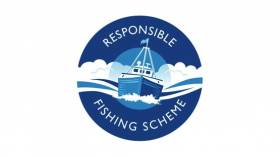Displaying items by tag: Responsible Fishing
M&S Signs Up For New Responsible Fishing Scheme
#Fishing - The UK's new voluntary Responsible Fishing Scheme (RFS) has received a boost as Marks & Spencer became the first retailer to sign up to its charter for sustainable fishing.
From next year all British fishing boats supplying M&S supermarkets will have to be certified by the RFS, confirming that any seafood they catch has been done so responsibly and that their crews have a safe working environment.
International fishing fleets have until 2021 to get certified under the scheme if they're to continue supplying M&S stores.
“We’re passionate about being a responsible retailer," M&S food director Andy Adcock told edie.net about the move, part of the retailer's Plan A sustainability programme.
"We only buy fish from the most sustainable sources, a commitment we’ve worked tirelessly on for almost 20 years, and this pledge means our customers can shop with us knowing we’ve done everything possible to protect the marine environment and those working in our fish supply chain.”
However, M&S is candid that it can't influence the fishing industry alone, with the company's Hannah Macintyre saying that more collaboration will be needed across the industry to ensure that the RFS "will do for fishing standards what the MSC has done for fish stocks".
edie.net has more on the story HERE.
























































